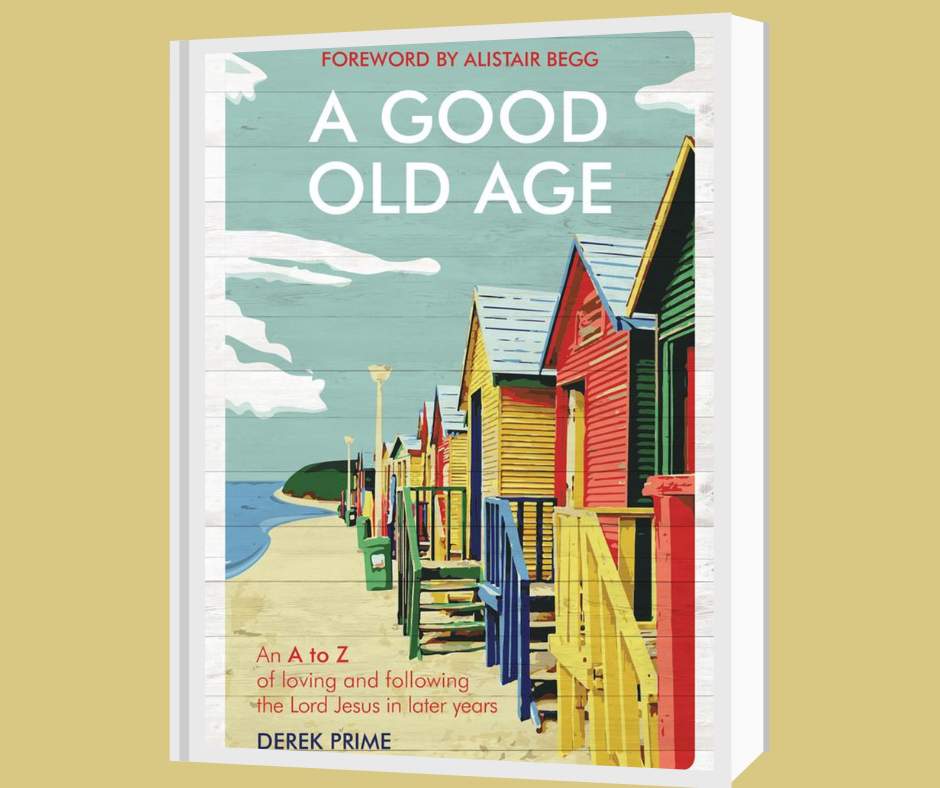Book Reviews
A Good Old Age: An A to Z of Loving and Following the Lord Jesus in Later Years, by Derek Prime | Review by Rosa Byler

A Good Old Age is unusual in both its method and target audience. Older people in quest of personal progress don’t usually start with alphabetized lists of desirable qualities; nor does the Christian publishing market abound in specific instruction for those of mature age. Derek Prime makes a significant contribution to filling that gap in the bookshelf, using the ABCs as the framework for his simply-written and unassuming book. His qualifications for the task include being a writer, retired pastor, and an octogenarian himself.
Readers will note that Prime lives in a flat, spells some words differently than Americans do, and shows hospitality by putting the kettle on for tea. Prime is British, but his key points know no cultural boundaries. The tone of the writing is positive and hopeful while being honest about the difficulties of aging, all the way from the little frustrations of being unable to run to catch a bus, trim one’s own toenails, or climb up on a stepladder to more formidable problems such as dementia. The book is also audience-friendly—lightweight, easy to hold, and printed in a font that, although not technically Large Print, is encouragingly large.
Natural and all-too-common responses to geriatric challenges include grumpiness, negativity, mistrust, and fear. Unfortunately, says Prime, older people have developed a reputation for these. His recurring theme is that we can trust the Lord who guided and sanctified us through the difficulties of early and middle life to continue that good work in our declining years.
The first quality is Acceptance, a significant part of any senior citizen’s job description. Referencing 2 Sam. 17:27-29, Prime describes six aspects of old age that David’s eighty-year-old friend Barzillai accepted. More are scattered throughout the book.
One of my favorite qualities is that of Encourager. Recalling older people who helped and encouraged him, Prime tells the story of attending his first prayer meeting at the age of fifteen (his parents were not churchgoers). Afterwards the older lady seated beside him asked him why he had not prayed. When he was doing his “national service” away from home, an elderly man from his church took notes on the pastor’s sermons and mailed them to him faithfully every Monday for two years.
Intercession for the needs of others is a well-known yet easily neglected responsibility of those who have more time to reflect and pray. Prime also recommends Talking. After his wife died, his voice actually developed a gruff quality from disuse. Now he daily reads or sings a hymn aloud (although he says no choir would have him), strikes up conversations with people he meets in the day’s routines, and even talks to himself. When inclined to listen to his own mental litany of complaints, he follows David’s example in Psalms 42 and 43: vigorous self-questioning and admonition that leads to remembering God’s goodness.
Old age is not the time to start becoming a godly older person, as Alastair Begg points out in the introduction. Forty-two years ago Begg was a young assistant pastor under Prime’s leadership, and he observes that the book holds no surprises for him: “…the path he lays out for old age was one on which he was already walking in his middle years.” (2) Books such as this one should be read not only by the aged but by everyone headed in that direction.